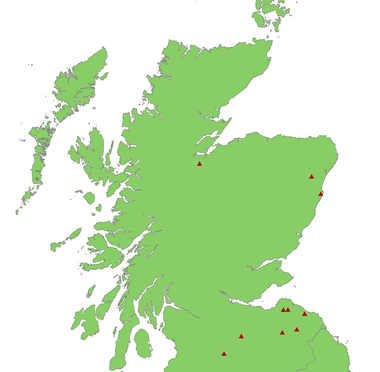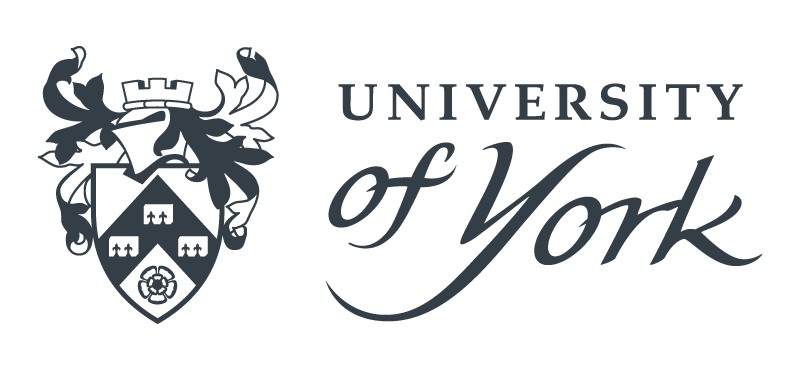Culture and Celtic Speech
John Koch, 2010. https://doi.org/10.5284/1000157. How to cite using this DOI
Data copyright © Prof John Koch unless otherwise stated
This work is licensed under the ADS Terms of Use and Access.
Primary contact
Prof
John
Koch
Senior Fellow
University of Wales Centre for Advanced Welsh and Celtic Studies
University of Wales
King Edward VII Avenue
Cathays Park
Cardiff
CF10 3NS
Wales
Tel: 01970 636543
Fax: 01970 639090
Resource identifiers
- ADS Collection: 408
- DOI:https://doi.org/10.5284/1000157
- How to cite using this DOI
Introduction

Distribution of 'Pictish' silver chains in Scotland (from the Atlas of Celtic Studies)
The 'Celticity Project' takes its impetus from the fact that those things termed 'Celtic' are today simultaneously of growing general interest, controversial (in both the academic and political arenas), and poorly understood. In this period, with the turbulent course of European integration on the one hand, and devolution to the cultural regions and nations within nations on the other, experts in Celtic studies are uniquely placed to illuminate the reality of the historical and cultural relations of Ireland, Britain, mainland Europe, and their respective parts. However, owing to the universal centrifugal tendency of academic specialization, a view of the big picture is a rarity and liable to be individualistically subjective. Too few scholars venture out of their preferred discipline, period, and geographic domain. And of those few, too many fall into the trap of duelling with shades - synthesizing or criticizing what the linguists or archaeologists thought a generation ago.
Therefore, we embarked on a major project which amounted to swimming upstream against the more usual pattern of funded research these days. Rather than staking out a discrete bit of under-exploited turf to explore and publish more-or-less fully, we were aiming for that 'big picture' invoked above - Celticity and Celtic studies in both their totality and in quantifiable significant detail.
In order to achieve this, the project's principal investigator and leader, Professor John T. Koch, Senior Research Fellow at the Centre and a recognized authority on the early Celtic languages and literatures, and main co-investigator Professor James P. Mallory, Queen's University, Belfast, a world-renowned archaeologist and prolific writer on the subjects of Ireland in the Bronze and Iron Ages, Indo-European Studies, and the saga literature of medieval Ireland, assembled a prestigious Advisory Panel of international senior scholars to provide a wide range of important perspectives on Celticity from a breadth of geographical and disciplinary vantages. The Panel has included Professor Robin Chapman Stacey of the University of Washington, Seattle, Professor Sir Barry Cunliffe of Oxford, Professor William Gillies of Edinburgh, the late Professor Gwenaël Le Duc of Rennes II, Professor Máirín Ní Dhonnchadha of the National University of Ireland Galway, Professor Pádraig Ó Riain of the National University of Ireland Galway Cork, Professor Peter Schrijver of Munich (now Utrecht), and Professor Stefan Zimmer of Bonn. These scholars lent their support to a team of young researchers from America, Germany, Holland, Ireland and Wales based at the Centre which has included the promising young scholars Caroline aan de Wiel, Peter Busse, Marion Löffler, Raimund Karl, Antone Minard, Simon Ó Faoláin, Britta Schultze-Thulin, and Esther Roberts, together with the experienced academic editor Marian Beech Hughes and bibliographer Anne Holley.
The time spanned by the research undertaken extends from later prehistory to the present. (In the modern world, the Celtic countries occupy a special place, as the corner of the Old World closest to the New with a massive impact through emigration.) The evidence gathered encompasses early linguistic material for the Celtic languages and evidence for the non-linguistic culture, particularly the archaeologically defined material culture with its own typology and distribution. Thus linguistic and material evidence for Celticity which for too long had been researched in isolation was combined. The purpose of the research has been to produce several major publications and research tools which would at once be innovative and multidisciplinary in their approach and ground-breaking in their completeness as reference works:
Celtic Culture: A Historical Encyclopedia
An Atlas for Celtic Studies [source files deposited with the ADS]
Cesair: An Interactive English-Early Irish Semantic Index [deposited with the ADS]
English-Early Irish Wordlist [deposited with the ADS]
Proto-Celtic--English wordlist [deposited with the ADS]
English-Proto-Celtic wordlist [deposited with the ADS]






